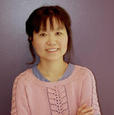Temporomandibular joint (TMJ) disorders (TMD) are a group of conditions that cause pain and dysfunction in the jaw joint and muscles that control jaw movement, which are often simply called TMJ. TMJ occurs when the lower jaw joints are inflamed or out of alignment, leading pain in the joint as well as in the surrounding muscles. These joints join the jawbone to the skull and if there is any inflammation it becomes difficult to chew. The most common symptoms are clicking and locking of the joint. This condition also causes many other symptoms, such as migraine headache, pain around the lower jaw joints. There are treatments like physiotherapy, medication and the use of bite guards. Acupuncture can be used to treat TMJ. By finding the root cause of the TMJ, you may be able to get rid of your medication.
Causes and Self-help Remedies for TMJ
Common causes of temporomandibular joint syndrome include poor posture, gum chewing, arthritis, injury to the teeth, tooth grinding caused by gut parasites, misalignment of the jaw or teeth, and even stress. It is advisable to avoid resting your chin on the hands, extreme jaw movements, excessive chewing and yawning. You should get checked to find out if you have parasites living in your gut, or any actions that lead to jaw muscle tightness. Some relaxation techniques may help loosen the jaws. It is also suggested to keep the teeth slightly apart whenever possible. There are also a few simple exercises that people with TMJ disorders can practice. Acupuncture is an effective remedy for TMJ, and has no side effects except local bruises in rare cases. It usually takes 12 to 24 treatments to reset the muscles and Temporomandibular joint in a balanced condition, so you can enjoy different foods in 2019 with deeper sleep. You also can save money by reducing the amount of dental work you’ll need, which can cost over $300 for each 20 minute treatment, plus a few hundred dollars of products that you will need every night.
Acupuncture Is a Good Remedy for Pain
Studies have revealed that acupuncture is very effective in treating TMJ. By reducing the inflammation around the nerve and Temporomandibular joints, nerve cells will not fire abnormally and this in turn decreases the pain sensation. It has also been found that among other biological actions, the release of endorphins, dopamine and serotonin are directly stimulated by acupuncture. These relaxing hormones can block and dampen the pain perception that the neurons transmit. That is why many people suffering from all kinds of aches and pains like back pain, arthritis; headaches, migraines etc. opt to see a practitioner of acupuncture. In western medicine, pain killers are the only form of respite for such conditions and after a long time even the painkillers will cease to give any relief. The instantaneous relief from acupuncture is also due to the relaxation of muscles around the Temporomandibular joints, which may last for a few days. But further treatments are required to get rid of the inflammation of the Temporamandibular joints and the nerves around the joint.
The Treatment Procedure
The treatment procedure could consist of needles being inserted around the jaw and the ear. Sometimes the needles are inserted near the knees, big toe and elbows because the pathways between the meridians are interconnected. According to practitioners of acupuncture, the flow of Qi can be altered from these distal locations to the jaw and the inflammation and pain will thus be relieved. It is considered important to correct the overflow of energy in the body, in order to relieve any stress in the body. Acupuncture minimizes the clicking that people with TMJ syndrome experience. The lateral pterygoid muscles are relaxed and this will help to reduce the anterior displacing force on the meniscus. Acupuncture does provide a multi-targeting effect to get rid of the root cause of TMJ, so you do not have to see your acupuncturist forever. You might have to visit for a tune-up if your stress level increases again.
Li Zheng is a licensed acupuncturist and herbalist and a graduate of the Beijing University of Chinese Medicine with 11 years of formal training, including 6 years of residency. She holds a Ph.D. in neuroscience from the US and is a Harvard Medical School-trained researcher and a professor at the New England School of Acupuncture. Her two practices are located in Needham, MA and Boca Raton, FL. She has 26 years of clinical experience. Here she is sharing the information about Acupuncture For Temporomandibular Joint Disorders.

Post new comment
Please Register or Login to post new comment.